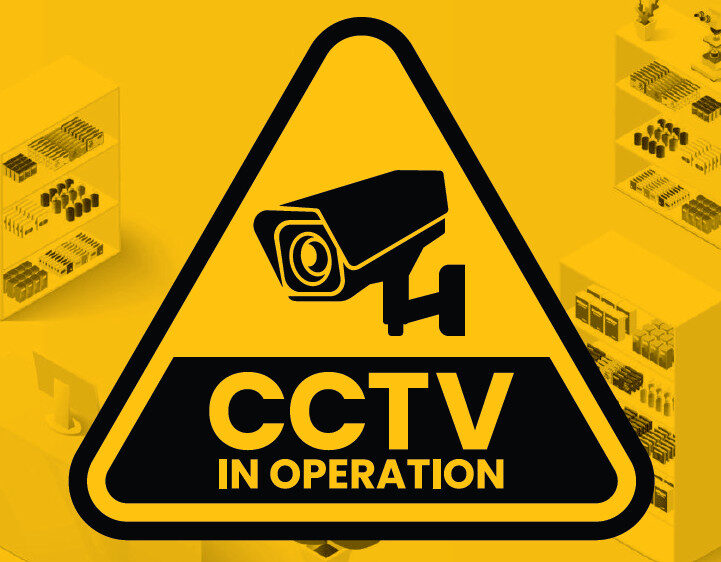Home » IPU Pharmacy Crime Survey 2025

The IPU’s Annual Crime Survey for 2025 paints a grim picture with a staggering 89 per cent of pharmacies reporting being victims of crime in the past 12 months. This represents a slight but concerning rise from last year’s already high figure of 88 per cent. Pharmacy owners and staff across the country are increasingly exposed to persistent, costly, and at times violent criminal activity.
This year’s survey, conducted in late June and capturing responses from 230 pharmacies nationwide, reveals not only the high incidence of crime but the growing severity, impact, and economic toll on pharmacy businesses and their staff.
As with previous years, shoplifting continues to dominate the list of criminal offences, reported by 96 per cent of pharmacies. More concerning, however, is the marked increase in repeated offences and the worrying rise in violence. Of those pharmacies impacted, 28 per cent reported more than 10 separate criminal incidents, indicating that many pharmacies are being repeatedly targeted.
While only 6 per cent reported raids and 5 per cent reported break-ins, 14 per cent of incidents involved the use of a weapon, most commonly a knife (72 per cent), but also syringes (28 per cent) and guns (11 per cent).
Just as unsettling is the frequency of these attacks during business hours, with 91 per cent of incidents occurred while staff were on-site and the pharmacy open to the public. This has understandably taken a toll on staff wellbeing, with 56 per cent reporting stress or trauma as a result of these crimes, and nearly one in four (24 per cent) requiring time off work.
Cosmetics and front-of-counter items remain the top targets for thieves, with 89 per cent of pharmacies reporting thefts of beauty products. Fake tan (54 per cent) and supplements (38 per cent) were frequently stolen, followed by OTC drugs (10 per cent). Although only a small proportion of incidents involved the theft of prescription or controlled drugs (7 per cent and 3 per cent, respectively), the threat posed by even a few such instances cannot be overstated.
Perhaps one of the most concerning trends revealed by the 2025 survey is the persistence of repeat offending, with 59 per cent of respondents reporting that they had been targeted more than once by the same individuals. This sense of being “easy prey” is echoed in comments from pharmacists who feel let down by weak deterrents and insufficient support from the justice system.
While 69 per cent of crimes were reported to the Gardaí, only 22 per cent of respondents felt their case was dealt with “very effectively” or “effectively.” A combined 44 per cent rated Garda response as either “ineffective” or “not at all effective.” In light of this, several respondents had sympathy for a perceived lack of resources for the Gardaí.
Frustration with the judicial system is also evident, with many pharmacists describing a “revolving door” scenario where perpetrators are repeatedly released without serious consequences. This has led to a worrying 31 per cent of pharmacies not reporting crimes at all, mirroring last year’s finding and highlighting a further reduction in their confidence in law enforcement and judicial deterrence.
A significant outcome of rising crime is the mounting financial burden on pharmacies. This year, 64 per cent of respondents reported increased security costs, up from 61 per cent in 2024, with almost half (49 per cent) experiencing increases of between 6 – 10 per cent. CCTV remains the most widely used preventive measure (98 per cent), followed by alarm systems (86 per cent), firewalls (48 per cent) and spam filters (46 per cent).
Despite these investments, 31 per cent of pharmacies also reported increases in their insurance premiums due to crime, with over 17 per cent facing hikes above 10 per cent. These are unsustainable costs for many independent businesses operating in an already challenging economic environment.
Pharmacies now spend an average of €5,300 annually on security, with 65 per cent relying on professional security firms for guidance. When combined with the average cost of €4,500 per pharmacy due to criminal incidents, pharmacists face a total annual bill of nearly €10,000 as a result of crime, a significant financial burden.
Pharmacists are clear about what needs to be done. An overwhelming 91 per cent are calling for faster Garda response times, and 89 per cent want to see tougher sentencing for offenders. Increased Garda visibility and town centre surveillance through CCTV were also highlighted as essential deterrents.
This aligns with calls made in the 2024 report, where 76 per cent of pharmacists demanded greater use of CCTV in public spaces and 79 per cent pressed for more visible policing. Many pharmacists remain demoralised with the current system and the lack of effectiveness in bringing perpetrators to justice. As one respondent put it; “Though it seems that individual cases are insignificant, the cumulative effect is very costly, with loss of stock, extra security, time spent on reporting, and court attendance. The lack of punishment is demoralising and only encourages others to do the same.”
Pharmacies are more than retail outlets, they are vital healthcare access points. Crimes against pharmacies are not just thefts, they are direct threats to healthcare delivery and staff wellbeing. As incidents become more frequent and more violent, there is a growing urgency for systemic reform.
The IPU is again calling for a zero-tolerance approach from the Gardaí and the judiciary, backed by tougher sentencing and more robust Garda engagement. The details of the survey have been shared with the Gardaí. The IPU continues to offer its ‘Security Pack’ and advice services for members seeking to strengthen their defences.
For more information, or to request a Security Pack, contact contracts@ipu.ie or call 01 493 6401.
Jim Curran

Director of Public Affairs and Communications, IPU
Highlighted Articles